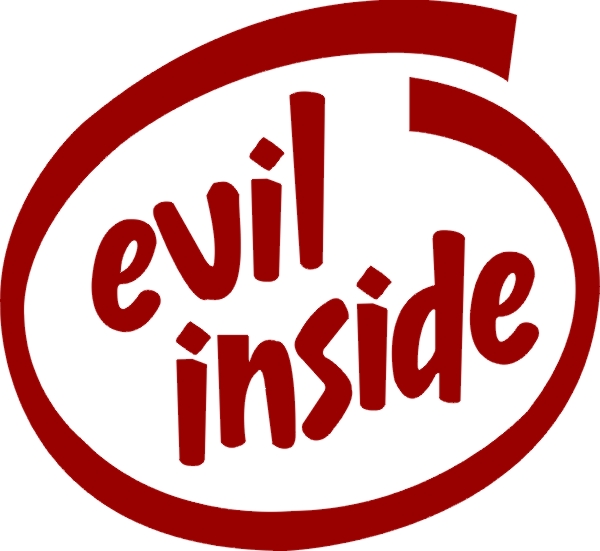
Age - First appearance of site in Archive.org, or first appearance in search engines. Not to be confused with domain age, which is the registration date of the domain name. Older sites have more credibility, but for SEO purposes the "age" clock starts when a site is cached by a search engine.
Algorithm - A very complex series of rules used by a search engine to determine rankings. The Google Algorithm uses up to 200 different factors to determine web rankings.
Analytics - Most often, this is a reference to Google Analytics, a free way to measure your site traffic. Other analytics programs include ClickTracks, WebTrends, and Omniture.
Anchor Text - Linked text on a web page. Example: This is anchor text. Anchor text is important because search engines use it to determine what the destination page is about. Therefore, anchor text must be topical and relevant.
Backlinks - The number of links from other websites to your website. Google Webmaster Tools will give you the most accurate picture of your own links, and a search in Yahoo under link:yourcompetitorsitehere.com will tell you how many links Yahoo is listing for that site.
Ban - A severe search engine penalty that takes you completely out of the index. Normally caused by using black hat techniques.
Black Hat - In reference to search engine optimization, a technique that is unethical in the eyes of a search engine, and can get you de-listed.
Bounce Rate - The number of people who come to a web page from another site (or search engine) and leave without visiting any other pages. A high bounce rate is believed to negatively affect search engine rankings over time. Most often measured using Google Analytics.
Cache - The search engine's stored data about your site. This information can be weeks or months out of date, depending on your crawl rate. When you make SEO changes to your site, it won't be applied until the site gets re-cached and re-indexed. To see your cache in Google, type in cache: followed by your website.
Content - All text on your website readable to the search engine. Usually this is in reference to the body text on your pages.
Conversion - A visit to your site that results in an action being completed by the user. This can be a form fill-out, purchase, or phone call.
Conversion Rate - The number of conversions divided by the number of visitors. Higher conversion rates are always preferred. In Google Analytics, this can be considered "Goal" conversion.
Crawl Rate (Frequency) - The interval between search engine robot visits to your site. Generally, sites with frequent changes and more interesting (to a robot) content get visited more often. Pages with higher PageRank also get visited more often.
Description - A metatag that allows for a brief description of the page's content. All description tags on a site should be unique, and less than 256 characters.
Directory - A website that lists other websites in categories.
Duplicate Content - Content that is substantially similar to content on other sites or on multiple pages of your own site. Non-original content is generally ignored by search engines, and referred to as a "duplicate content penalty" when it impacts your site. Duplicate content is often cached but not presented in normal search results.
External Link - A link to another site or online resource from your site.
Google Sitemap - An XML sitemap that lists pages on your website that you want Google to find. The same protocol is used by Yahoo and MSN. Several sources online will create a sitemap for you. Not to be confused with a sitemap that lists all the pages on your website.
Filter - A reduction in search engine ranking for a number of possible reasons. Filters are different than penalties, in that when the item tripping the "filter" is removed, then results should bounce back.
Indexing - When a search engine applies your site results and links to its current index. Web pages can be cached for some time before the cached results are applied to the index.
Internal Link - Links from pages on your site to other pages on your site. How pages link to each other is known as Navigation.
Keyword Blurring - Using the same keywords on multiple web pages. This keeps the search engine from picking a "best" page for the keyword, so multiple pages may have lower positions that a single page devoted to the topic.
Keyword Stuffing - Using multiple keyword repetition on a web page. Search engines prefer text and keyword use that is more readable and user-friendly.
Keyword Tool - Any tool that helps determine keyword demand. Wordtracker and the Google Keyword Tool are two popular sources.
Keyword Research - Strategic research into the demand for keywords relevant to a website's topic. Good keyword research also uncovers synonyms and search terms that may improve site traffic.
Link Juice - A way of explaining the relative power of any link to another page on the same site or external web page, based on the power of the referring page and the number of other links on that page. For example, a powerful page with a single outbound link to your site would have more "link juice" than the same page a link to you among 49 other links. Link Juice Illustrated.
Links - In the world of SEO, "links" is most commonly a way of referring to inbound links to your website, given that Google bases a great deal of its rankings on other sites that link to yours. The value of links is highly variable, and links from sites trusted by search engines are more powerful than links from low quality sites.
Link Popularity - An overall measurement of a website or web page's link value, as determined by links from outside sources and links form other pages, which may themselves be getting good inbound links.
Long Tail - A keyword that contains a long search phrase. Long tail keywords usually have a lower search volume but a higher conversion rate, because the people who type them in have a very specific idea about what they want.
Metatags - Page code not normally visible to a site visitor which describes the content of the page. The Meta Title, Keywords, and Description tags are the most common, but metatags can contain many different fields of data not important to search engines.
Navigation - The way links are configured on a website to allow people to get to other pages. Search engines like to follow navigation and use it to determine the relative importance of pages on a site.
PageRank - (1) a numerical representation applied by Google showing the link value of any given page. This is completely determined by links from other websites and internal links. It is not a representation of the relevance of the site. There is a logarithmic scale of 1 to ten for PageRank, and higher numbers may require millions of links. This can be found using the Google Toolbar. (2) The algorithm at Google, not completely known to the public, that determines part of how links impact rankings.
Pay-Per-Click (PPC) - Paid search engine advertisements that appear next to search results. PPC can be very expensive, but can be executed within hours, while SEO can take months.
Penalty - A change in search engine rankings caused by breaking one or more "rules" of search engine ethics. A search engine "filter" is a less strict penalty, but a "penalty" can be applied for a longer time period and is generally a sign that you are believed to be deliberately violating webmaster guidelines for search engines.
Ranking - A keyword position on a search engine, anywhere from #1 to somewhere in the billions. Usually you want your site to show on the first page for your keywords.
Ranking Report - A listing that shows positions on search engines (usually Google, MSN/Bing, and Yahoo) for a list of preferred keywords. Monthly ranking reports will show you your progress over time.
Reinclusion Request - A request to a search engine that a site be reexamined for inclusion back into listings. This is most commonly done when a site has been penalized or banned.
Relevance - The key to good SEO. More relevant sites are preferred by search engines because they confirm the search engine user's trust in the ability of the engine to deliver results. SEO practices help format a site in such a way that the engine can understand its relevance.
Robot - An automated program that visits your website.
Robots.txt - A file on your website that can either allow robots or restrict them. Robots files can be useful when you want duplicate pages to be ignored, or search engines are crawling unnecessary pages.
Sandbox (AKA Sandbox Penalty or Google Sandbox) - An artificially low ranking due to having a new website. The existence of the sandbox penalty is debated, but generally a new site will get lower rankings. Search engines use this to prevent junk sites from getting rankings. There are ways to get out of the "sandbox" by being relevant, but customers with new sites are still advised that search engines may take some time to show good rankings.
Search Volume - How many times (usually per month) that a keyword search is made in a given search engine, or all engines. High search volume indicates a competitive keyword which may be more profitable.
Short Tail - A one or two word search term like "auto parts" that gets a high search volume, but is not very specific. A "long tail" version of the same term would be "used auto parts free shipping."
Spider - Essentially a search engine robot that "crawls" your website for information.
SEM - Search Engine Marketing. This most often refers to Pay-Per-Click initiatives, but can also include SEO as part of an online marketing strategy.
SEO - Search Engine Optimization, or the practice of getting websites ranked on search engines through a variety of specialized methods.
SERP - Search Engine Results Page. The list of websites that you get when you make a search on a search engine.
Silo - A way of structuring categories on your website and individual web pages. Normally all the pages and navigation links in a silo are relevant to each other, and the "silo" structure helps improve rankings by structuring similar items into easily navigated categories. This benefits search engines and site users.
SPAM - In search engine parlance, Spam is not junk email but site content and linking practices that are keyword stuffed, automated, or created to get undeserved rankings for search terms.
Submission - The act of submitting a site to search engines or directories. For new sites, submission is still useful, but any site cached in a search engine would not need to be re-submitted.
Title - Also known as the meta title, the title of each web page appears at the top of the browser window. It tells search engines about the topic of each page. A well written title can have the fastest impact on search engine rankings if all other factors are good.
Webmaster Tools - Google Webmaster Tools is a free program that will help the average user understand how Google sees the website, if there are any problems, and if the site is penalized. Highly recommended to any webmaster.
White Hat - Search Engine Optimization techniques that are approved by search engines.
XML Sitemap - A "Google Sitemap" or a list of pages that you want search engines to find. This normally gets placed in your root directory in an XML format and named "sitemap.xml." The sitemap contains information about pages, their relative priority, and how often they are updated.
Borrowed from
WebProNews. I really wish that it didn't take so long to load a single page.

 Now this is an interesting turn of events. While I've never been much of a fan of Outlook (I've preferred the express version - it's less, but less clutter as well) but it looks like they're changing it up all over again. Microsoft are due to change from rendering emails in HTML format to Word. This will basically
Now this is an interesting turn of events. While I've never been much of a fan of Outlook (I've preferred the express version - it's less, but less clutter as well) but it looks like they're changing it up all over again. Microsoft are due to change from rendering emails in HTML format to Word. This will basically 



 Well Google may have diffused that bomb, but looks like bing.com are more than happy to keep it locked and loaded. Danny Sullivan of Search Engine Land pointed out that for some reason the "miserable failure" bomb seems to be live and well (or is that lit and fused?) in recent times.
Well Google may have diffused that bomb, but looks like bing.com are more than happy to keep it locked and loaded. Danny Sullivan of Search Engine Land pointed out that for some reason the "miserable failure" bomb seems to be live and well (or is that lit and fused?) in recent times.
